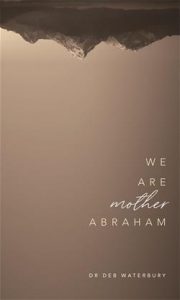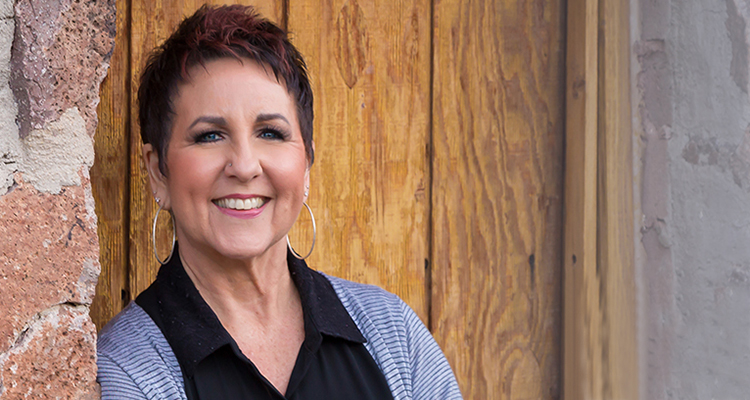 Tucson, AZ (January 15, 2020)
Tucson, AZ (January 15, 2020)
In her tenth book, author, speaker and film producer Dr. Deb Waterbury has created what she calls a “book within a book” with her new release, We are Mother Abraham, which quickly became an Amazon #1 best-seller in three different categories, including Biblical Fiction. But Waterbury admits the essence of the book comes from a very personal place in her own life.
“My youngest son is a recovering alcoholic,” says Waterbury. “As his mother, I believed that it was my responsibility to not only care for him, but to save him. What this meant for the times he relapsed was that I moved quickly to do whatever was necessary to either alleviate his pain or keep him out of trouble as much as I could. It wasn’t until he disappeared for six weeks that I really came to the end of myself in terms of what I could and should do. One morning during another tearful prayer session in my home office, I kept hearing the words, ‘Mother Abraham, Mother Abraham,’ over and over in my head. I felt urged to read Genesis 22, but I was still confused since this was about Abraham and not Sarah, but then I felt as if God was saying, ‘As difficult as it was for Abraham to sacrifice his only son, it was even more difficult for Sarah to let him go. If I choose to let your son die, you must be okay with that.’ I fell headlong on the floor, sobbing almost uncontrollably. This began my journey for truth as it pertains to mothers, their children, and God’s unique call on mothers’ lives as they must give those same children back to God.”
We are Mother Abraham is a fictional account of a mother whose daughter is a drug addict. In the story, the mother is invited to a Bible study at church called “Mother Abraham.” The book includes passages from the real-life Bible study about Sarah which Waterbury also wrote, and is now available to individuals and churches as a free download from her website. Though there are no biblical passages that specifically talk about Sarah’s reaction to Abraham taking Isaac to be sacrificed, Waterbury says there are plenty of scriptures that offer insight into Sarah’s overall personality and character.
“The Bible tells us quite a bit about Sarah from various stories,” says Waterbury. “Sarah was long-suffering, curious, opinionated, strong-willed, and most definitely a ‘she-bear’ when it came to her son. Using everything the Bible does say about Abraham, Sarah, and the history of their marriage and parenthood, along with the across-the-board reaction of mothers to letting their children go, the book’s story and Bible study was not hard to surmise.”
Waterbury is the founder of the Reap What You Sew School for Women in Malawi, Africa which is the subject of a documentary that has garnered eight film festival awards since its release last year. Waterbury says mothers everywhere face the same issues regardless of race, country, or background.
“Our ferociously-protective natures over our children can make us sometimes go to serious extremes when our children stray or are in pain,” says Waterbury. “We may wonder why it is so hard for us to let go of our children in the first place. That pain can make us question our spouses, ourselves, and even God when we question things like ‘Why doesn’t my husband struggle like I do? Why would God let my child hurt or fail or go? Why am I having such a hard time with this?’ I believe that the only way we can find answers to these questions when it comes to the daunting task of letting our children go is to explore the truth of God’s Word, the reality of God’s mission, and the beauty of God’s love.”

 Listen Live
Listen Live
Leave a Reply
You must be logged in to post a comment.